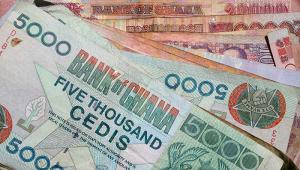Web_Mongolia_iStock_000010958063_Large.jpg

Falling commodity prices have dampened the impact of the discovery of vast reserves of high-grade coal and other commodities in Mongolia.
Ratings agency Fitch refrained from further downgrading Mongolia’s debt over the weekend, citing the deal with IMF staff as a key factor.
The package still needs to secure approval from the IMF’s executive board, which is expected in March. The funding will also depend on the government implementing implementing some of the required reforms beforehand.
One of the main elements of the package is the requirement for a combination of spending cuts and tax increases to contain Mongolia’s budget deficit and high public debt.
This will be supported by $440m from the IMF, along with $3bn for the budget and projects from Mongolia’s other partners including the Asian Development Bank, the World Bank and Japan and Korea. An extension worth around $2.2bn on a currency swap agreement with China is also included.
Following a commodity-driven boom in its economy, Mongolia was hit hard by the crash in prices in minerals like copper, gold and iron.
After an ill-advised spending spree during the good years, the country is now struggling to repay debts worth more than double its GDP. Total external dues are estimated at $23.5bn, while the Mongolian economy is worth $12bn.
“Fiscal consolidation is a key priority, as loose fiscal policy in the past was a major driver of Mongolia’s current economic difficulties,” said Koshy Mathai, the IMF staff member who led the fund’s mission to Mongolia.
“Budget deficits will be reduced steadily, while priority social spending will be maintained,” he explained. “For instance, the savings from better targeting the Child Money Programme will be used entirely to increase spending on the food stamp programme for the most vulnerable.
“Also, to boost revenue, the personal income tax will be made more progressive, with rates on only higher-income households increased.”
He added that a number of “important fiscal reforms” will be adopted to ensure future budget discipline. These include the formation of a body to provide independent budget forecasts and estimate the cost of policy proposals, and provisions to give the government sole authority to determine the amount of spending in the budget.
The programme will also see the Development Bank of Mongolia (DBM) shift to operating in an independent, commercial manner, while the Bank of Mongolia (BoM) will pursue only monetary interventions from now on.
Fitch Ratings welcomed the agreement, which it said delivered “sufficient confidence” that Mongolia can meet its debt obligations, including on a $580m bond from the DBM which matures in March.
“Mongolia’s credit profile remains under pressure since our downgrade in November 2016, but Fitch believes that the sovereign has the capacity and the willingness to service its immediate debt liabilities,” Fitch said in a statement.












